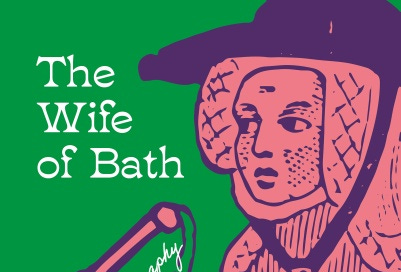There are two parts to the biography of Alison in The Wife of Bath. Marion Turner situates Alison in her late medieval setting in the first section by fusing accounts of genuine women's experiences in post-plague Europe with the sexist literary clichés that formed expectations of both fictional and real women. In the second section, she follows Alison's life after Chaucer's passing from the worried remarks of scribes in the fifteenth century through Zadie Smith's The Wife of Willesden.
Two ideas are central to this biography. First, there is little difference between Alison and the women in Chaucer's time. To draw a line between them is to deny the influence each has on the other. Secondly, there is an increasing persistence of misogynistic responses to Alison and women like her. Turner describes "the most arresting moment of The Wife of Bath's Prologue" as the moment Alison asks "Who peyntede the leon, tell me who?" If we were to ask the same question about Chaucer, it would be: does Chaucer undermine himself as a non-misogynistic author when he puts the question on Alison's lips? In other words, does the absence of a female voice or author in literature signify a prejudicial lacuna?
Why read a biography of a literary character? Why read a biography of a literary character created a long time ago? To make the character more accessible to scholars and students of literature through historical reading. To show how male writers' responses to Alison have been increasingly misogynistic since Chaucer created her.
However, given the second idea central to this biography, I'd say that this book will not benefit scholars and students alone. It will also be of benefit to readers interested in the idea of misogyny in literature and life.





